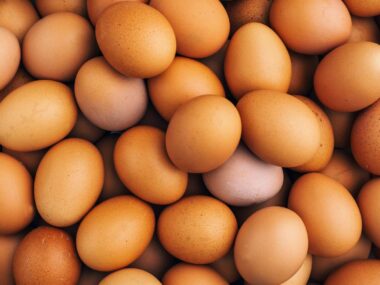Zucchini, also known as courgette in some regions, is a versatile and nutritious vegetable that offers a variety of health benefits.
Adding zucchini to your meals is easy and versatile, as this vegetable can be incorporated into various dishes. Here are several ways to include zucchini in your meals:
Sautéed or Stir-Fried Zucchini
- Slice zucchini into rounds or sticks and sauté or stir-fry with olive oil, garlic, and your choice of seasonings. You can add other vegetables like bell peppers and onions for a flavorful side dish.
Zucchini Noodles (Zoodles)
- Use a spiralizer to turn zucchini into “noodles.” Saute them in a pan or blanch briefly in boiling water. Top with your favorite pasta sauce or pesto for a low-carb alternative to pasta.
Roasted Zucchini
- Cut zucchini into bite-sized pieces, drizzle with olive oil, and season with salt, pepper, and your choice of herbs. Roast in the oven until they’re tender and slightly caramelized.
Zucchini Fritters

- Grate zucchini and mix it with egg, breadcrumbs, grated cheese, and seasonings to create zucchini fritters. Pan-fry them until golden brown and serve as a snack or side dish.
Zucchini Soups:
- Add zucchini to your favorite soup recipes. Zucchini can add a creamy texture when blended, such as in a zucchini soup or as a base for vegetable soups.
Grilled Zucchini
- Slice zucchini into long strips or rounds and grill them. Drizzle with olive oil and season with herbs for a simple and flavorful side dish.
Stuffed Zucchini
- Cut zucchini in half lengthwise and scoop out the seeds to create a hollow “boat.” Fill with a mixture of cooked ground meat, rice, or other fillings, top with cheese, and bake until tender.
Zucchini Frittata or Omelette
- Add sliced or diced zucchini to your morning eggs. Combine with other vegetables, herbs, and cheese for a tasty frittata or omelet.
Zucchini Lasagna
- Use zucchini slices in place of lasagna noodles to create a low-carb lasagna. Layer them with your favorite sauce, cheese, and other fillings.
Zucchini in Salads
- Slice zucchini thinly and add it to your salads for added texture and freshness. It pairs well with tomatoes, cucumbers, and feta cheese.
Baked Zucchini Chips
- Slice zucchini into thin rounds, season with your choice of spices, and bake them in the oven until crispy. They make a healthy and crunchy snack.
Zucchini Smoothies:
- Add raw, peeled zucchini to your smoothies for a creamy texture and extra nutrients. It pairs well with fruits and leafy greens.
Zucchini Bread or Muffins:
- Grate zucchini and incorporate it into your baked goods like zucchini bread or muffins for added moisture and a hint of sweetness.
Zucchini’s mild flavor and versatility make it an excellent addition to many dishes. Experiment with these methods to find your favorite way to include this nutritious vegetable in your meals.
Nutritional Benefits of adding Zucchini to your Meal
1. Low in Calories: Zucchini is incredibly low in calories, making it a great choice for those looking to manage their weight. It’s about 95% water, which means it can help keep you feeling full without adding significant calories to your diet.
2. High in Nutrients: Despite its low-calorie content, zucchini is rich in essential nutrients, including vitamins and minerals. It’s a good source of vitamin C, vitamin A, vitamin K, and several B vitamins. It also contains minerals like potassium, manganese, and folate.
3. Rich in Antioxidants: Zucchini contains antioxidants such as carotenoids (beta-carotene and lutein) and vitamin C, which can help protect your cells from damage caused by free radicals. Antioxidants are associated with a reduced risk of chronic diseases.
4. Good Source of Dietary Fiber: Zucchini is a good source of dietary fiber, particularly in its skin. Dietary fiber is essential for digestive health and can help prevent constipation. It also aids in maintaining healthy cholesterol levels and can contribute to weight management.
5. Supports Heart Health: The potassium content in zucchini helps regulate blood pressure and can contribute to heart health. Additionally, the fiber and antioxidants in zucchini may help lower the risk of heart disease.
6. Weight Management: Due to its low calorie and high water content, zucchini can be an excellent addition to a weight loss or weight management plan. Its fiber content helps keep you feeling full, reducing the likelihood of overeating.
7. Improves Digestion: Zucchini’s fiber content supports healthy digestion by promoting regular bowel movements and preventing digestive issues like constipation.
8. Skin Health: The antioxidants in zucchini, especially vitamin C and beta-carotene, are beneficial for maintaining healthy skin. They may help protect the skin from damage caused by UV rays and reduce the signs of aging.
9. Eye Health: The presence of lutein in zucchini is associated with improved eye health. Lutein is known to reduce the risk of age-related macular degeneration and cataracts.
10. Versatile and Low-Carb: Zucchini can be used in a variety of recipes as a low-carb alternative to pasta or a replacement for starchy vegetables, making it suitable for people on low-carb or keto diets.
11. Easy to Include in Meals: Zucchini is versatile and can be incorporated into salads, stir-fries, soups, and even baked goods. It adds a mild, slightly nutty flavor to dishes.
While zucchini offers numerous health benefits, it’s important to maintain a balanced diet that includes a variety of vegetables and nutrients. Including zucchini in your diet can be a tasty and nutritious way to support your overall well-being.










